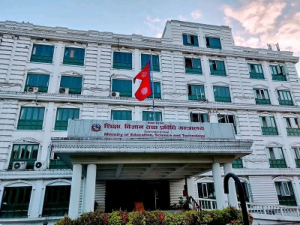The number of people infected with coronavirus has been declining in Nepal for the past few days. Only 108 coronavirus cases were recorded in 24 hours on Thursday while on Wednesday, 204 people tested positive for coronavirus in 24 hours.
Analysing the statistics of the last 10 days, number of infected persons in 24 hours stood at 774 on July 3 – highest number of cases recorded in a single day till date. The next day, only 232 people tested positive. Since then, the number of positive cases has not increased significantly.
Meanwhile, the government has stopped announcing the number of RDTs conducted daily whereas the number of PCR tests have significantly decreased of late.
It is important to note here that the government has not announced that it has halted RDTs, only stopped giving the data.
Earlier, Minister for Health and Population Bhanubhakta Dhakal had announced to increase PCR testing to 10,000 daily from June 29. However, only around 4,500 PCR tests are conducted on average each day. Thursday’s statistics show that 4,588 PCR tests were done in 24 hours.
So far, 7,791 PCR tests a day has been the highest number of tests conducted in a single day.
According to the Ministry, the reduced number of PCR testing is due to a decreased number of people at quarantine centers and isolations. As of Thursday, 2,850 people were in quarantine center in Province 1; 2,990 in Province 2; 1,907 in Bagmati Province; 4,250 in Gandaki Province; 5,240 in Province 5; 1,899 in Karnali Province, and 5,289 in the Far West Province.
In the meantime, the number of people recovering from coronavirus has also increased. As of Thursday, the number of those returning home after recovery reached 7,891.
Spokesperson for the Ministry of Health and Population, Jageshwar Gautam, attributed the decline in number of infected persons in the last few days to proper management of healthcare system and strictness adopted in people’s movement at border points.
“As the number of people infected with Covid-19 is declining, people’s lives have started to normalize and their concern also seems to be have gone away. However, a decrease in the number of infections does not mean a reduction in the risk of coronavirus infection.” he said.
Writing on Facebook, Public health expert Dr Rabindra Pandey said, “Decreased number of infected people in Nepal for the past few weeks could be a result of very slow testing, loss of RNA of samples kept on hold for a long time, incorrect reports in the laboratory, lack of contact tracing, etc.”
He added that the decision to open public transportation services without testing the level of Covid-19’s community spread was unscientific.



